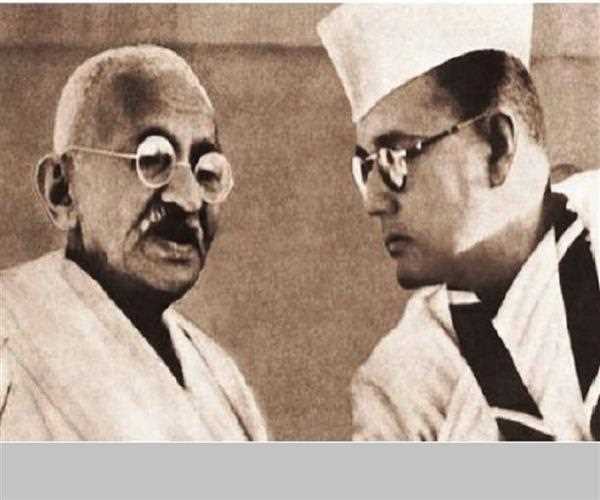Netaji Subhas Chandra Bose and Mahatma Gandhi are two of the most important figures in Indian history who played pivotal roles in the country's freedom struggle against the British Empire. While both of them are revered for their contributions, there have been debates and discussions over the years about their differing ideologies and methods. One such topic of debate is whether Netaji supported Mahatma Gandhi's non-violent movement or not. In this article, we will explore this question in detail.
Background
Mahatma Gandhi's non-violent movement, also known as satyagraha, was based on the principle of ahimsa or non-violence. Gandhi believed that non-violent resistance was the most effective way to fight against injustice and oppression, and his methods inspired many leaders across the world, including Martin Luther King Jr. and Nelson Mandela.
Netaji Subhas Chandra Bose, on the other hand, was a fierce nationalist who believed in taking more aggressive measures to achieve India's independence. He believed that violence was sometimes necessary to achieve a greater good and did not agree with Gandhi's philosophy of non-violence.

Different ideologies
While Netaji admired Gandhi and acknowledged his contributions to the freedom struggle, he differed from him in his methods. He believed that non-violent resistance was only effective against a relatively weak and morally responsible opponent, but against a powerful and brutal oppressor like the British Empire, more aggressive measures were needed.
In fact, Netaji resigned from the presidency of the Indian National Congress in 1939 because he did not agree with the party's policies of non-violent resistance. He founded the Forward Bloc in 1939, which aimed to unite all left-leaning forces in India to fight against British imperialism.
In his famous book, "The Indian Struggle", Netaji wrote, "It is not enough merely to drive away the foreign rulers. The roots of imperialism have to be destroyed. This can only be done by armed revolution." He believed that the British would never leave India willingly and that a violent revolution was necessary to achieve freedom.
Conclusion
In conclusion, while Netaji Subhas Chandra Bose respected Mahatma Gandhi and his contributions to the Indian freedom struggle, he differed from him in his methods. Netaji believed that violence was sometimes necessary to achieve the greater good, especially against a powerful oppressor like the British Empire. Though their ideologies differed, both leaders contributed immensely to the country's freedom struggle and are remembered as heroes in Indian history.